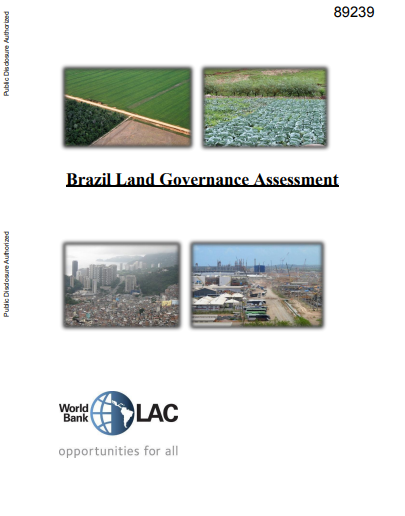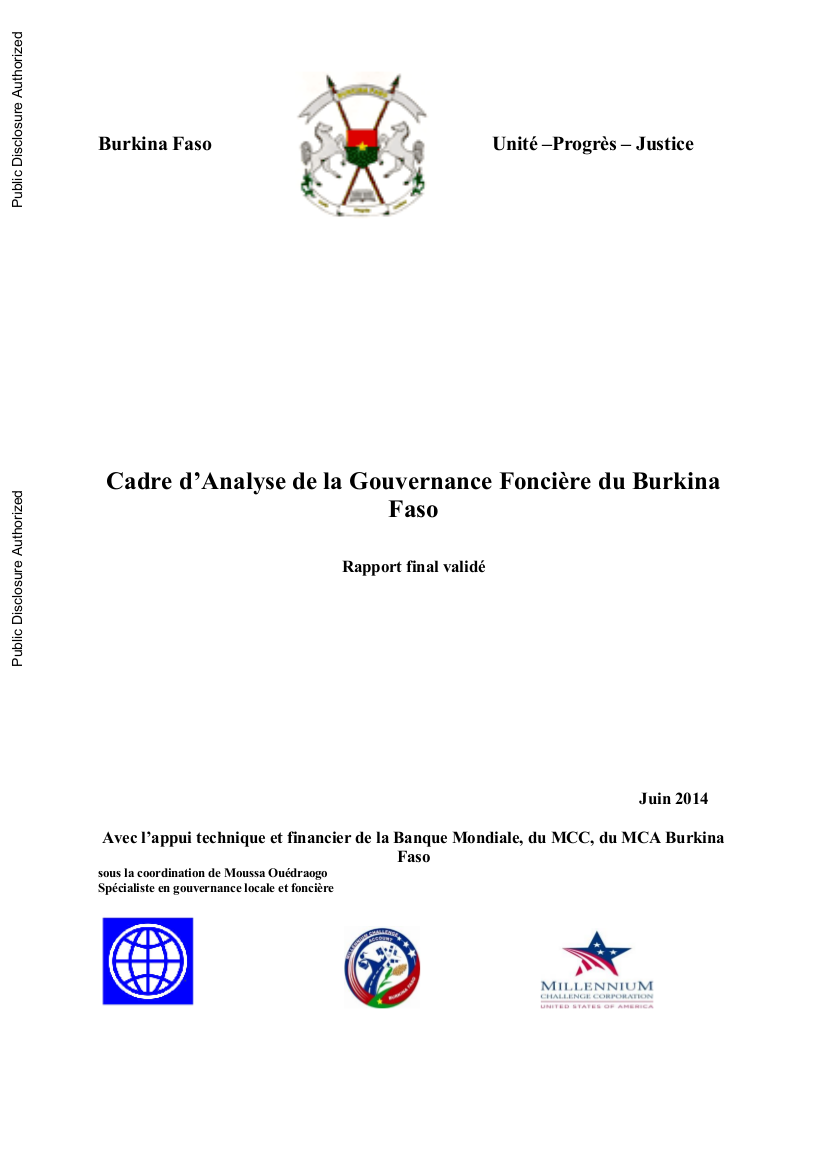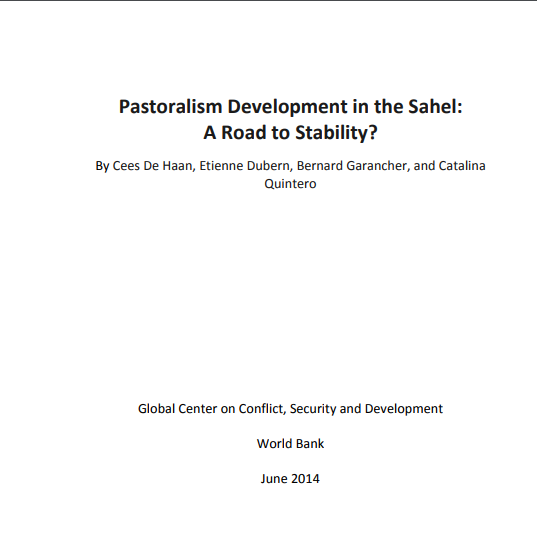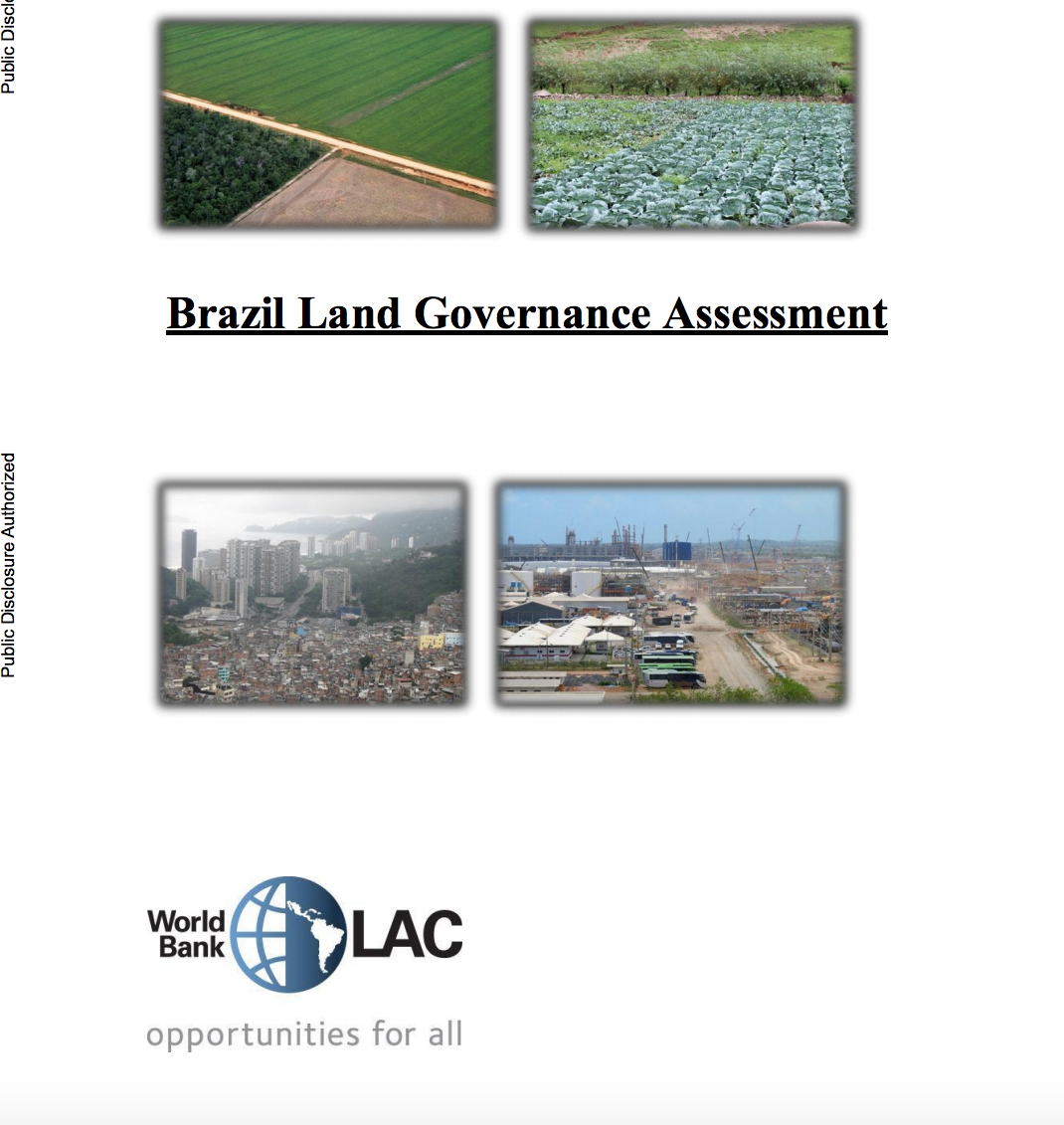The World Bank is a vital source of financial and technical assistance to developing countries around the world. We are not a bank in the ordinary sense but a unique partnership to reduce poverty and support development. The World Bank Group has two ambitious goals: End extreme poverty within a generation and boost shared prosperity.
- To end extreme poverty, the Bank's goal is to decrease the percentage of people living on less than $1.25 a day to no more than 3% by 2030.
- To promote shared prosperity, the goal is to promote income growth of the bottom 40% of the population in each country.
The World Bank Group comprises five institutions managed by their member countries.
The World Bank Group and Land: Working to protect the rights of existing land users and to help secure benefits for smallholder farmers
The World Bank (IBRD and IDA) interacts primarily with governments to increase agricultural productivity, strengthen land tenure policies and improve land governance. More than 90% of the World Bank’s agriculture portfolio focuses on the productivity and access to markets by small holder farmers. Ten percent of our projects focus on the governance of land tenure.
Similarly, investments by the International Finance Corporation (IFC), the World Bank Group’s private sector arm, including those in larger scale enterprises, overwhelmingly support smallholder farmers through improved access to finance, inputs and markets, and as direct suppliers. IFC invests in environmentally and socially sustainable private enterprises in all parts of the value chain (inputs such as irrigation and fertilizers, primary production, processing, transport and storage, traders, and risk management facilities including weather/crop insurance, warehouse financing, etc
For more information, visit the World Bank Group and land and food security (https://www.worldbank.org/en/topic/agriculture/brief/land-and-food-security1
Resources
Displaying 1636 - 1640 of 4907Brazil - Land governance assessment (English)
This report on the assessment of land governance in Brazil summarizes and discusses the results of a series of standardized self-assessments of the land governance situation in Brazil, conducted entirely by Brazilian speakers. Therefore, these findings represent the perception of local experts based on their experience of news and data available. The main aim of this report are federal and state authorities directly involved in land governance in the evaluated states and other states.
Cadre d’analyse de la gouvernance foncière du Burkina Faso: Rapport final validé
Cadre d’analyse de la gouvernance foncière du Burkina Faso : Rapport final validé (French)
Pastoralism Development in the Sahel: A Road to Stability?
Pastoralism is one of the dominant economies of the Sahel and is by far the main economy on the fringes of the Sahara, a zone of which recently some areas have become unstable. It is estimated that about 50 million people rely on pastoralism for their livelihoods in the Sahel and the Saharan fringes, and most of them are poor. However, the Northern parts of the Sahel and the Sahara have seen a rapid recrudescence of trafficking and other illegal activities. Some areas are now home to extremist groups, several of which are involved in terrorist activities.
Land Governance Assessment Framework Synthesis Report
This report synthesizes and discusses the findings of a series of self-assessments of the land governance1 situation in Brazil conducted entirely by knowledgeable Brazilians using a standardized indicator-based diagnostic assessment instrument. The findings, therefore, represent the perception of local experts based on their collective experience and available data. The primary audience of this report comprises federal and state officials directly involved in land governance within the assessed states and in the other states.
Doing Business 2014 Economy Profile : Canada
This economy profile presents the Doing Business indicators for Canada. In a series of annual reports, Doing Business assesses regulations affecting domestic firms in 189 economies and ranks the economies in 10 areas of business regulation, such as starting a business, resolving insolvency and trading across borders. This year's report data cover regulations measured from June 2012 through May 2013. The report is the 11th edition of the Doing Business series.










